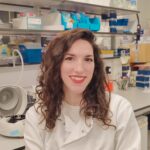Lien vers Pubmed [PMID] – 37690594
Lien DOI – 10.1016/j.jaci.2023.08.033
J Allergy Clin Immunol 2024 Feb; 153(2): 521-526.e11
Urticaria is characterized by inappropriate mast cell degranulation leading to the development of wheals and/or angioedema. Twin and family studies indicate that there is a substantial heritable component to urticaria risk.Our aim was to identify genomic loci at which common genetic variation influences urticaria susceptibility.Genome-wide association studies of urticaria (including all subtypes) from 3 European cohorts (UK Biobank, FinnGen, and the Trøndelag Health Study [HUNT]) were combined through statistical meta-analysis (14,306 urticaria cases and 650,664 controls). Cases were identified via electronic health care records from primary and/or secondary care. To identify putative causal variants and genes, statistical fine-mapping, colocalization, and interrogation of publicly available single-cell transcriptome sequencing resources were performed.Genome-wide significant associations (P < 5 × 10-8) were identified at 6 independent loci. These included 2 previously reported association signals at 1q44 and the human leucocyte antigen region on chromosome 6. Genes with expected or established roles in mast cell biology were associated with the 4 other genome-wide association signals (GCSAML, FCER1A, TPSAB1, and CBLB). Colocalization of association signals consistent with the presence of shared causal variants was observed between urticaria susceptibility and increased expression of GCSAML (posterior probability of colocalization [PPcoloc] = 0.89) and FCER1A (PPcoloc = 0.91) in skin.Common genetic variation influencing the risk of developing urticaria was identified at 6 genomic loci. The relationship between genes with roles in mast cell biology and several association signals implicates genetic variability of specific components of mast cell function in the development of urticaria.
